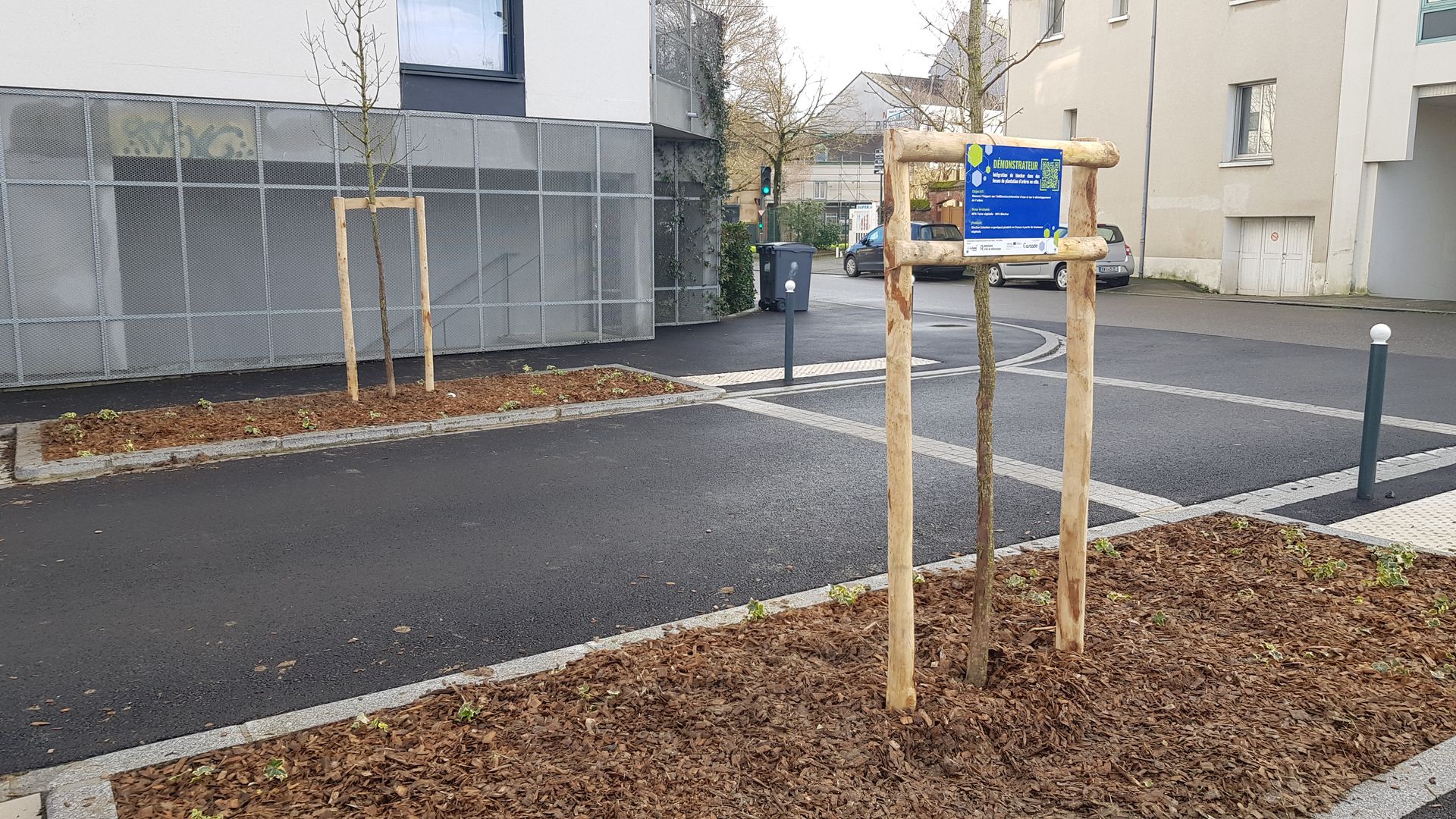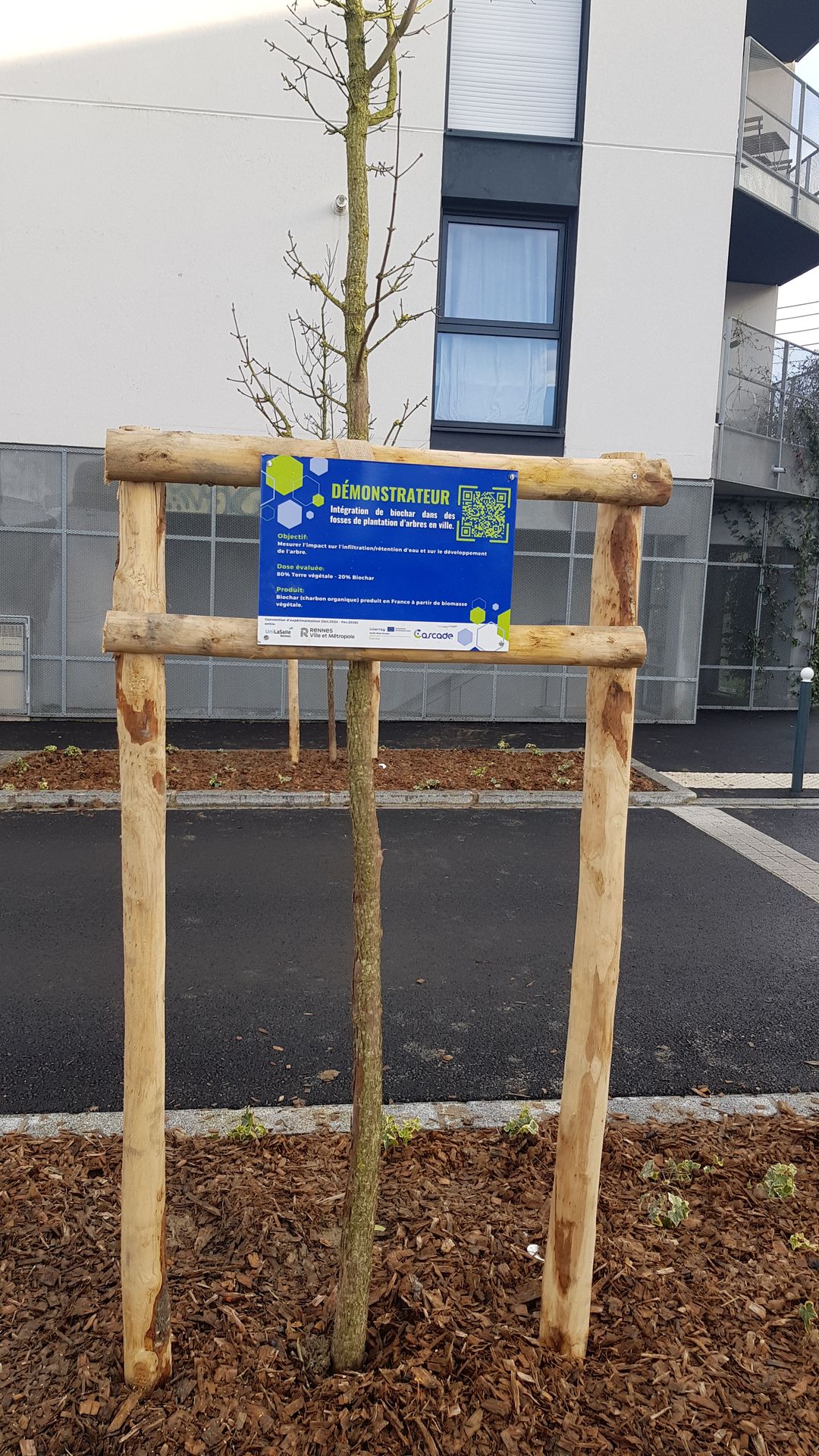In partnership with Rennes Ville & Métropole, Unilasalle Rennes has launched an experiment involving the application of biochar in a street planting and integrated stormwater management scheme.
The demonstrator is part of the CASCADE project, funded by the European Union's INTERREG NWE program. This project aims to set up an integrated system for the management and conversion of biomass into biochar in 7 regions of north-western Europe. Unilasalle Rennes is the French partner in this project, coordinated by the University of Kassel.

In the dynamics of urban greening, urban renaturation and integrated stormwater management, the rain tree is, along with the rain garden and ditches, one of the most widely used landscaping techniques by local authorities. A larger space per tree, a slightly depressed green space to capture and retain runoff - these are the characteristic features of the rain tree. This experiment, launched in October, aims to validate the biochar's ability to provide water retention services during heavy rains (such as those experienced recently in Rennes), and also to enable the tree to better withstand longer dry periods. For this demonstrator, a street was chosen, and various green spaces of 10 and 25m² were created, some of which contain a mixture of topsoil and biochar.
For the preparation and implementation of this trial, the Direction des Jardins et de la Biodiversité and the Direction de la Voirie de la Métropole and operators of the City of Rennes were mobilized, both partners of Unilasalle.
The Unilasalle’s research team has set up an installation and monitoring protocol to assess the impact of biochar on tree health and rainwater infiltration capacity for at least 16 months. The aim is to contribute to a more permeable city.
